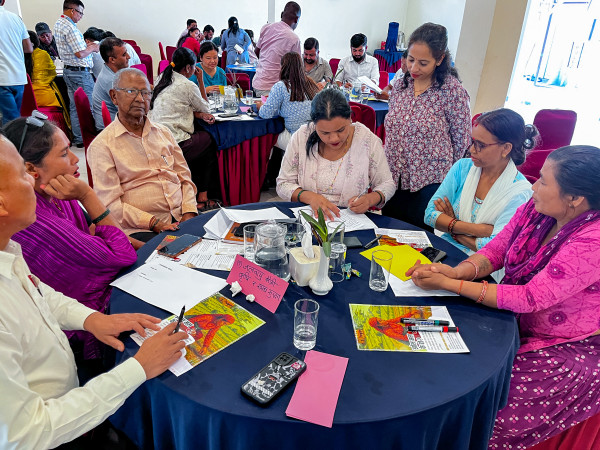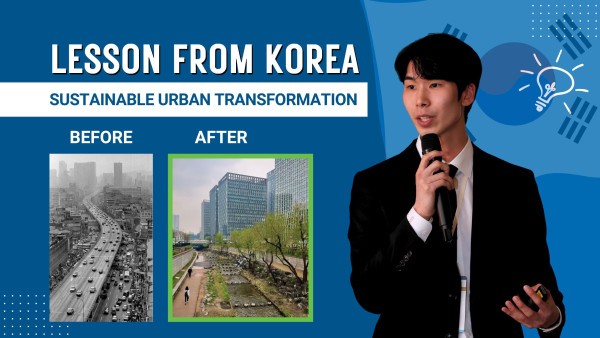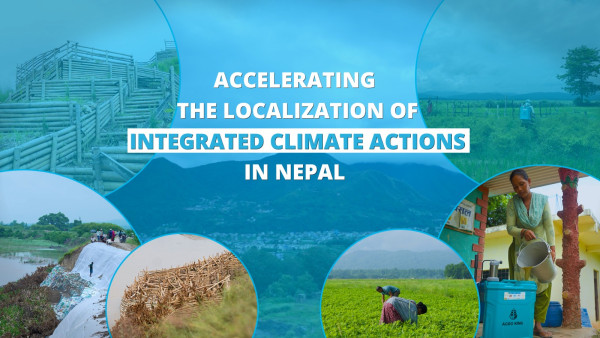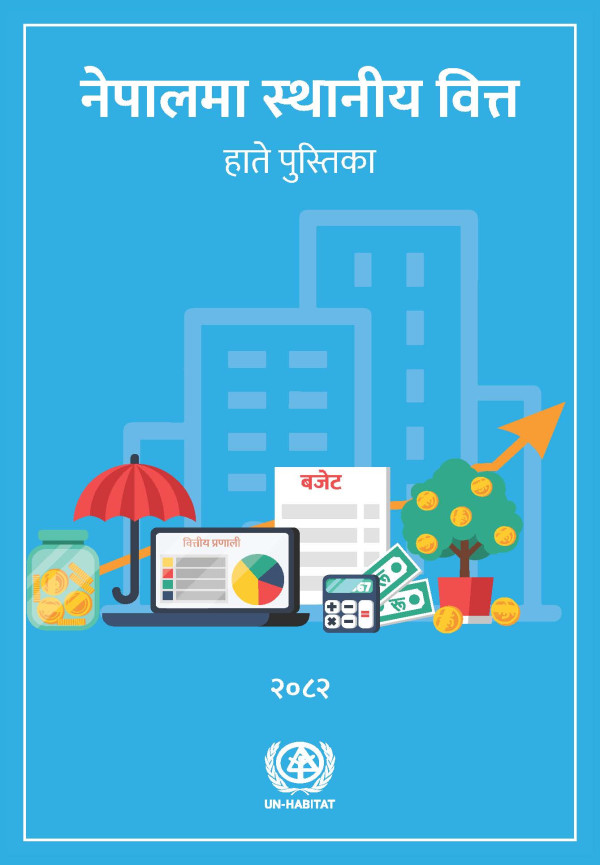
SDG Acceleration for Climate Action
|
Project Fund |
SDG Joint Fund with contribution from Participating UN Organizations (PUNO) |
|
Project Partners |
WFP, UNDP, UN-Habitat |
|
Region |
Tajakot Rural Municipality - Karnali Province (WFP) Lamahi Municipality – Lumbini Province (UN-Habitat) Hariwan Municipality - Madhesh Province (UNDP) |
|
Purpose |
To support the process of transforming SDG 13 on climate action into reality at the local level |
|
Duration |
September 2024 – September 2025 |
"Accelerating the Localization of Integrated Climate Actions in Nepal" is to support the process of supporting implementation of SDG 13 through deliberate climate actions at the local level. With the help of this project, the local governments will boost their capacity and knowledge to develop climate perspective informed development plans and implement corresponding actions. Through the interventions of the project, climate related local needs and priorities will be systematically documented to effectively mobilize the available public finance through annual programme and budget. The local governments will be supported to develop integrated framework for localisation of climate actions to contribute towards green, resilient and inclusive development (GRID) approach to create balance between development activities and environmental conservation by blending green conservation methods along with all sectoral development activities and by designing, planning and implementing all development actions taking the climate rationale and benefits into consideration and by coding the annual budget and programme from GRID perspective. In addition, with the capacity strengthening support, the local governments will be able to formulate the local adaptation/climate resilience building plan, integrate it into the regular planning and budgeting mechanism, and based on which, they will develop some bankable climate adaptation projects to unlock climate finance from different sources including international climate finance instruments and donors through federal government.
This will result in targeted communities, particularly those most vulnerable to climate change and its impacts, benefiting from tailored approaches by local governments to improve their resilience and adapt to a changing climate so that the impacts on lives and livelihoods are minimised. Given the cross-cutting nature of climate change and the environment through localising SDG 13, this will inadvertently support in progressing localized actions that support advancing other SDGs, such as SDG 1, SDG 2, SDG 3, SDG 5, and SDG 17.
|
Outcome: Climate vulnerable populations in Nepal, especially women, youth, children, and the most marginalised and poor, benefit from integrated, inclusive localised climate actions and frameworks to minimise the impacts of climate change. |
||
|
Output 1: Knowledge on successful gender-responsive and inclusive climate actions collated to develop an integrated framework for localization of relevant SDGs. |
Output 2: Targeted local governments capacitated with an integrated policy framework developed in a participatory manner to advance rural and urban development that is increasingly sustainable and climate resilient through localization of successful climate actions (UNSDCF Output 3.1.2) |
Output 3: Evidence-based advocacy and communications for scaling up of an integrated climate action localisation framework promoted to enhance awareness and access to finance |
|
1.1. Map and establish a catalogue of scalable successful climate change adaptation and environment conservation models
|
2.1. Support targeted local and provincial governments in developing integrated policy frameworks for localisation of climate actions that address the needs of the most marginalized and vulnerable communities |
3.1. Prepare evidence products based on the lessons learned to support advocacy of integrated climate action framework
|
|
1.2. Develop/prepare an integrated framework for localisation of successful climate and environment actions to reduce the impact of climate to the especially marginalized and vulnerable groups |
2.2. Support targeted local governments to undertake participatory processes to develop gender responsive and inclusive climate adaptation plans and projects guided by the integrated policy framework, including financing mechanisms |
3.2. Mobilise and strengthen existing networks and communities of practice to advocate for internalisation of successful and replicable inclusive climate actions and provisions of necessary resources |
|
1.3. Prepare inclusive knowledge products and communication materials on SDG localisation of climate and environment actions
|
2.3. Build the capacity of targeted local governments to mobilise resources to implement plans and projects for the localisation of relevant SDGs |
3.3. Manage, monitor, communicate and report on the JP in support of localisation of inclusive climate actions
|






